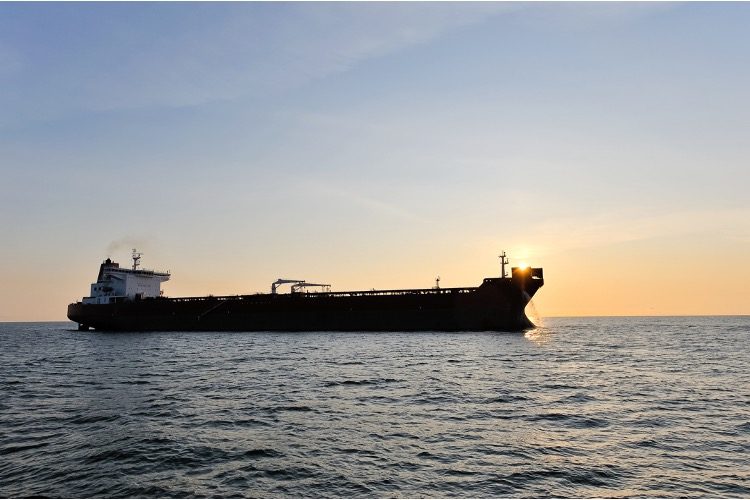
Maritime exports of Russian crude oil saw a robust recovery in the week of February 4 after two weeks of disruptions, Bloomberg reported on Tuesday, indicating that the flows from the country’s major ports were at record levels.
Weekly average shipments reportedly rose by some 880,000 barrels per day, signifying the highest since the beginning of the year.
Flows from the country’s main export terminals rose considerably. Shipments from the Pacific port of Kozmino recovered to match previous highs after a storm halved exports the week before. At the same time, the Baltic port of Ust-Luga saw an increase after maintenance work cut flows late last month. Meanwhile, exports from Primorsk port in the Gulf of Finland equaled the previous week’s record.
In monetary terms, Russia’s crude exports reportedly rose to $1.79 billion in the seven days to February 4 versus $1.32 billion recorded in the previous week, marking the highest in over three months. At the same time, four-week average income rose by $86 million to $1.49 billion a week.
The surge put Russia’s shipments nearly 400,000 barrels per day above the level the Kremlin agreed on with its OPEC+ allies for the first quarter on a weekly basis. Nevertheless, the levels are still 100,000 barrels per day below that target on a four-week measure.
Russia has pledged to cut oil exports by 500,000 barrels per day below the May-June average during the first quarter of the present year, after several other members of the group agreed to make further output controls. The reduction is poised to be shared between Russian crude shipments that will be reduced by 300,000 barrels per day, and refined products.
The number of oil tankers that have switched to sailing under the flag of Gabon saw a five-fold rise in January versus the monthly average recorded last year, as per data tracked by maritime intelligence firm Windward AI, as cited by Bloomberg.
The data reportedly shows that more than 100 “dark-fleet” vessels displaying Gabonese flags were traversing global sea routes at the end of January, up from just 20 recorded in February 2023.
“The Gabon flag registry started to gain popularity as a flag of convenience, offering stakeholders an easy and cheap haven,” the CEO and co-founder of Windward AI, Ami Daniel, told the news agency, indicating that such a move is commonly aimed at avoiding the attention of regulators.
The United States, the EU, and their allies have in recent months been trying to increase enforcement of the price ceiling enforced on Russian oil exports by targeting companies that help to ship crude at prices above the threshold.
Daniel emphasized that maritime watchdogs have been increasing scrutiny of several states, where fleet registries have frequently been linked to illicit activities. “Flags like Liberia, St. Kitts and Nevis and the like have been heavily targeted by regulators — making them less attractive to bad actors,” the specialist said.
In the fourth quarter of last year, Panama, Liberia, and Russia were the top three flag-states for dark-fleet vessels, based on a report by Windward AI, which also uncovered that about 50 of the vessels that were flying the Gabonese flag in January had switched from the flags of Liberia and Panama and were owned by companies based in Russia.
The phenomenon of a dark fleet — meaning vessels under non-transparent ownership used for disabling tracking systems — emerged in the wake of the wide-ranging sanctions imposed on major oil exporting nations Venezuela and Iran. The use of such fleets has expanded significantly after Western attempts to cut Russia off from the global energy market owing to Ukraine-related sanctions.
Also, the German authorities are discussing nationalizing the local subsidiary of Russian state-controlled energy giant Rosneft, which has been under a trusteeship since 2022, the company said on Thursday.
The newspaper Handelsblatt reported, citing government sources, that a hearing that began on Monday indicates the first step toward a formal expropriation procedure the government is seeking to carry out.
As per the Russian oil giant’s law firm, Germany’s Economy Ministry informed Rosneft earlier this week that it was considering expropriating the stakes in the company’s German assets.
Notably, Rosneft Deutschland manages the company’s stakes in various German oil refineries. The assets include a 24 percent share in the country’s largest refinery in the city of Karlsruhe, a 28.57 percent share in BAYERNOIL Raffineriegesellschaft and a 54.17 percent stake in the PCK Raffinerie plant in Schwedt.
In 2022, after Moscow’s military operation began in Ukraine, the German federal government took control of Rosneft’s assets in the country and put them under a trusteeship. This included the Schwedt refinery, where Rosneft is the majority shareholder. The Economy Ministry at the time voiced concern that operations at the Rosneft facilities were at risk as other companies intended to stop cooperating with them owing to sanctions.
Berlin has extended the trusteeship twice, most recently in September 2023. The current trusteeship expires in March, implying the government will have to make a decision about how to proceed.
Rosneft’s attempts to challenge the assets being taken over have been rejected by German courts. A law imposed by the Bundestag in April 2023 permits the outright expropriation of Russian assets by the German government.
Speaking at a press conference with top EU diplomat Josep Borrell in Kyiv on February 7, Ukrainian Foreign Minister Dmitry Kuleba said that the EU’s defense industrial base is lagging behind Russia’s, which means that Ukrainian troops are suffering from a shortage of artillery ammunition.
Kuleba underscored that it is necessary to start talks with third countries that buy shells from the EU to redirect deliveries to Ukraine. The minister posited that the two should approach these nations and tell them, “Sorry, we need [the ammunition] to protect Europe.”
He added that if anyone asks a Ukrainian frontline soldier what he needs, the reply would be “ammunition.” “The scale of the war and Russia’s use of artillery has reached such a level that, let’s be honest, European warehouses were not ready,” Kuleba said.
As per the diplomat, both Ukraine and the EU are doing their utmost to procure and produce as many shells as possible. He posited that when Ukrainian troops have no ammunition, they stop Russian forces with “other available weapons,” adding that “the main goal is to prevent the ammunition shortage from turning into ammunition starvation.”
The Wall Street Journal, citing a Ukrainian official, reported on Wednesday that “Russian forces are outshooting Ukrainians by about 10 Russian shells to every one they fire.” Officials in Moscow have said they have significantly increased the production of ammunition since the start of the Russia-Ukraine conflict in February 2022. Russian Defense Minister Sergey Shoigu has said that Russian troops are being provided with an amount of munitions adequate for “the scope of the tasks they perform.”


